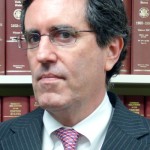
The Congressional Research Service departed from its usual focus on current policy and legislative issues to produce a new disquisition on the separation of powers in the U.S. government. The separation of powers doctrine “is rooted in a political philosophy that aims to keep power from consolidating in any single person or entity, and a key goal of the framers of the Constitution was to establish a governing system that diffused and divided power.”
However, the branches do not always act in their own structural interests (as is often the case in congressional oversight of intelligence, for example). “Although each branch has strong incentives to protect its prerogatives, in many cases individual political actors have incentives that run counter to their institutional affiliation. In particular, political actors will often, quite reasonably, place the short-term achievement of substantive policy goals ahead of the long-term preservation of institutional power for their branch of government.”
CRS concludes that “the contemporary balance of power between the President, Congress, and the courts is not the same as it was in 1789, and is perhaps not the balance intended or expected by the framers of the Constitution.”
In any case, CRS says, “the relative power of the President, Congress, and the courts is not on any specific trajectory. At various times since the ratification of the Constitution, the power of each institution has been at times ascendant and at other times on the decline.”
See Separation of Powers: An Overview, January 8, 2016



